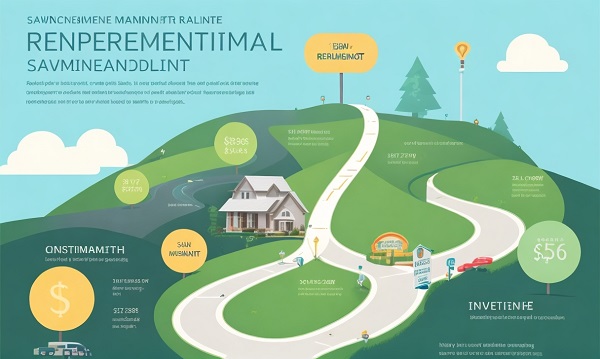How much money do you need to retire worry-free?
Retirement arranging has forever been a vital monetary viewpoint, however the expense of resigning has been consistently expanding throughout the long term. As per a new web-based study led by Schwab, the typical sum that most Americans accept they need to put something aside for retirement is presently $1.8 million, contrasted with the earlier year’s gauge of $1.7 million. This demonstrates a developing worry among people about having an adequate number of assets to carry on with an agreeable existence after retirement.

How much money do you need to retire happily?
The Test of Meeting the $1.8 Million Retirement Objective
The Schwab concentrate on elaborate studying 1,000 members who were important for U.S. 401(k) plans. The outcomes showed that just 37% of the respondents are hopeful about accomplishing the $1.8 million retirement objective. This is a decay of 10% from the earlier year’s information, featuring a critical diminishing in certainty among laborers in regards to their retirement reserve funds.
The Impact of Inflation on Retirement Planning
One of the significant impediments that people face with regards to retirement arranging is the effect of expansion. In spite of expansion having facilitated to 3% in June from a 9.1% pinnacle a year prior, 62% of the studied laborers actually look at expansion as a block to putting something aside for retirement. This rate has increased from 45% in the earlier year. The flow monetary climate, especially expansion, has shaken the confidence that Americans had in their retirement plans before the pandemic, as verified by Craig Copeland, the head of abundance benefits research at the Representative Advantage Exploration Organization (EBRI).
Is the $1.8 Million Retirement Objective Reasonable?
Thomas Salvino, the Chief of Execution Riches, communicates that a retirement asset of $1.8 million is a significant total for the typical American to accomplish in the present monetary scene. He recommends that people need to take on imaginative planning, diminish costs, and embrace a more thrifty way of life to pursue this aggressive objective. In any case, he likewise offers consolation by expressing that there’s compelling reason need to overreact in the event that this particular sum isn’t met. Acclimating to a marginally lower retirement store doesn’t be guaranteed to mean forfeiting an agreeable retirement; it could involve making some way of life changes, like eliminating travel and feasting out.
Fitting Retirement Objectives to Individual Necessities
The specific sum expected for retirement shifts in light of individual conditions and way of life inclinations. There is definitely not a one-size-fits-all way to deal with retirement arranging. It’s fundamental for people to assess their particular monetary requirements and desires while defining their retirement objectives.
Maintaining Expectations for an Agreeable Retirement
Regardless of the difficulties and vulnerabilities encompassing retirement reserve funds, there’s a silver lining in the review results. Close to half of the respondents actually keep a feeling of confidence about arriving at their retirement objectives. Moreover, just 14% of members accept that they are probably not going to accomplish their ideal retirement reserves.
Brian Binge, the head of Schwab Work environment Monetary Administrations, stresses that retirement saving remaining parts a need for laborers. Over the course of the last year, people have kept on maintaining their 401(k) reserve funds rates and have commonly stayed reliable with their venture procedures. This devotion to retirement arranging exhibits a guarantee to getting a stable monetary future.
Conclusion
Taking everything into account, the impression of how much cash is required for retirement is developing. The typical American currently accepts that saving $1.8 million is important for an agreeable retirement. Be that as it may, meeting this objective requires cautious preparation, brilliant planning, and adjusting to the always changing monetary scene. While the $1.8 million imprint may be trying to accomplish for some, it’s memorable’s significant that retirement objectives are private and ought to be custom-made to individual necessities and goals.
FAQs
1. Is $1.8 million the main objective for retirement reserve funds? No, the sum required for retirement shifts relying upon your way of life, objectives, and monetary circumstance. $1.8 million is a typical gauge, but individual necessities might contrast.
2. Consider the possibility that I can’t save $1.8 million for retirement. While $1.8 million is a typical objective, it’s not by any means the only method for having an agreeable retirement. You can change your way of life and monetary plans appropriately.
3. How does expansion influence retirement arranging? Expansion can disintegrate the buying force of your reserve funds over the long run. It’s essential to consider expansion while making arrangements for retirement.
4. Might I at any point resign with under $1.8 million? Indeed, you can resign with less, particularly assuming you pursue smart planning choices and focus on your fundamental costs.
5. Should retirement objectives be customized? Totally. Everybody’s monetary circumstance and retirement desires are special. Your retirement objectives ought to line up with your singular requirements and plans.

